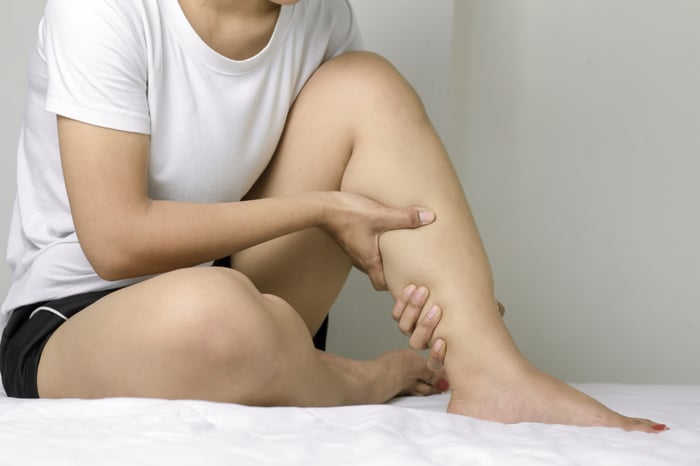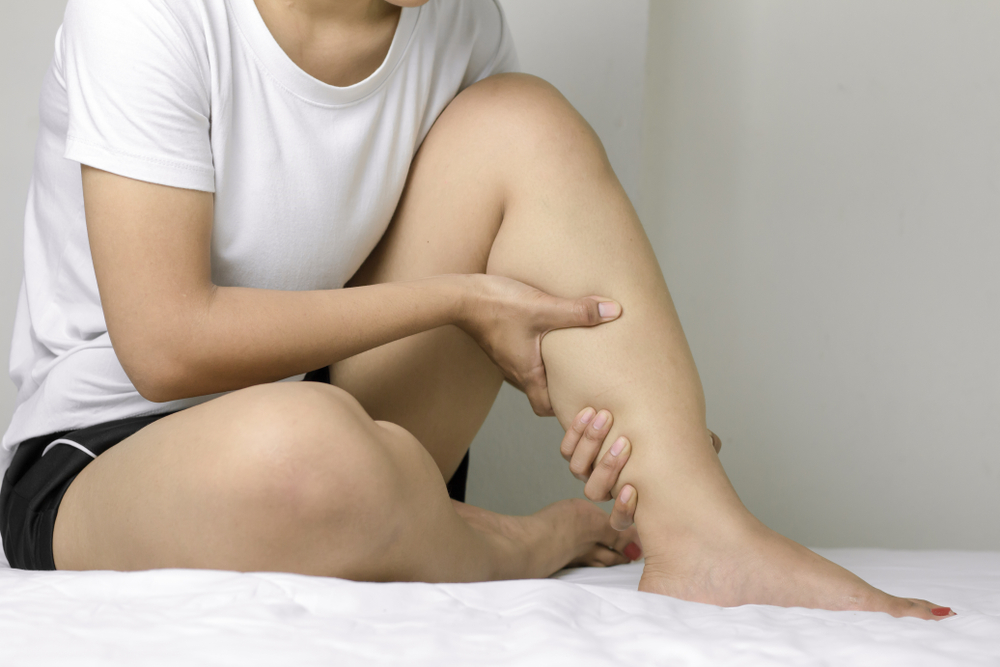How Do I Know if I'm Having a Leg Cramp? [VIDEO]

If you are experiencing sudden, sharp, muscle pains in your thighs, calves and feet, you are most likely suffering from leg cramps. It can be hard to know for sure, though, if what you are experiencing is actually a leg cramp, without a proper diagnosis.
The medical definition of a leg cramp includes that the muscle is tense and hard from contraction and it hurts! If it doesn’t hurt, it’s likely not a cramp. After a cramp, the muscle is tender and sore, sometimes for days, because of mild muscle damage. Cramps are common. Your healthcare provider may have some suggestions, but if you find those suggestions ineffective, it may very well be that your leg cramps are the result of a vein condition. The only way to know that for sure is to schedule a specialized vein ultrasound with a vein specialist.
In the video below, I talk in more detail about what is actually happening in your body when you experience a leg cramp, and how to spot them.
Lack of blood flow and oxygen to the muscles cause sudden spasms and contractions in the legs. This causes pain receptors to go crazy. You are not alone if you are suffering from large amounts of pain when dealing with these cramps! Leg cramps can often end up leaving temporary damage to the muscle affected. If you are sore for days after experiencing these sharp pains, it is most likely you are having leg cramps.
Leg cramps due to a vein condition can occur in multiple locations, not just the calf muscle. Patients tell me they experience leg cramps in the thigh (inner or outer), calf (front or back), and the foot. The most painful ones are in the inner thigh because there’s really no way to stretch or make it go away.
Working in vein care, I commonly see patients suffering from frequent leg cramps at night. I find that the most common reason for these cramps is, in fact, due to a vein reflux condition. Patients with vein reflux will experience leg cramps almost always at night - which is the primary indicator that a vein condition is the cause. The good news is that vein reflux can be easily treated, and most patients see a huge difference in symptoms the first night after their treatment.




